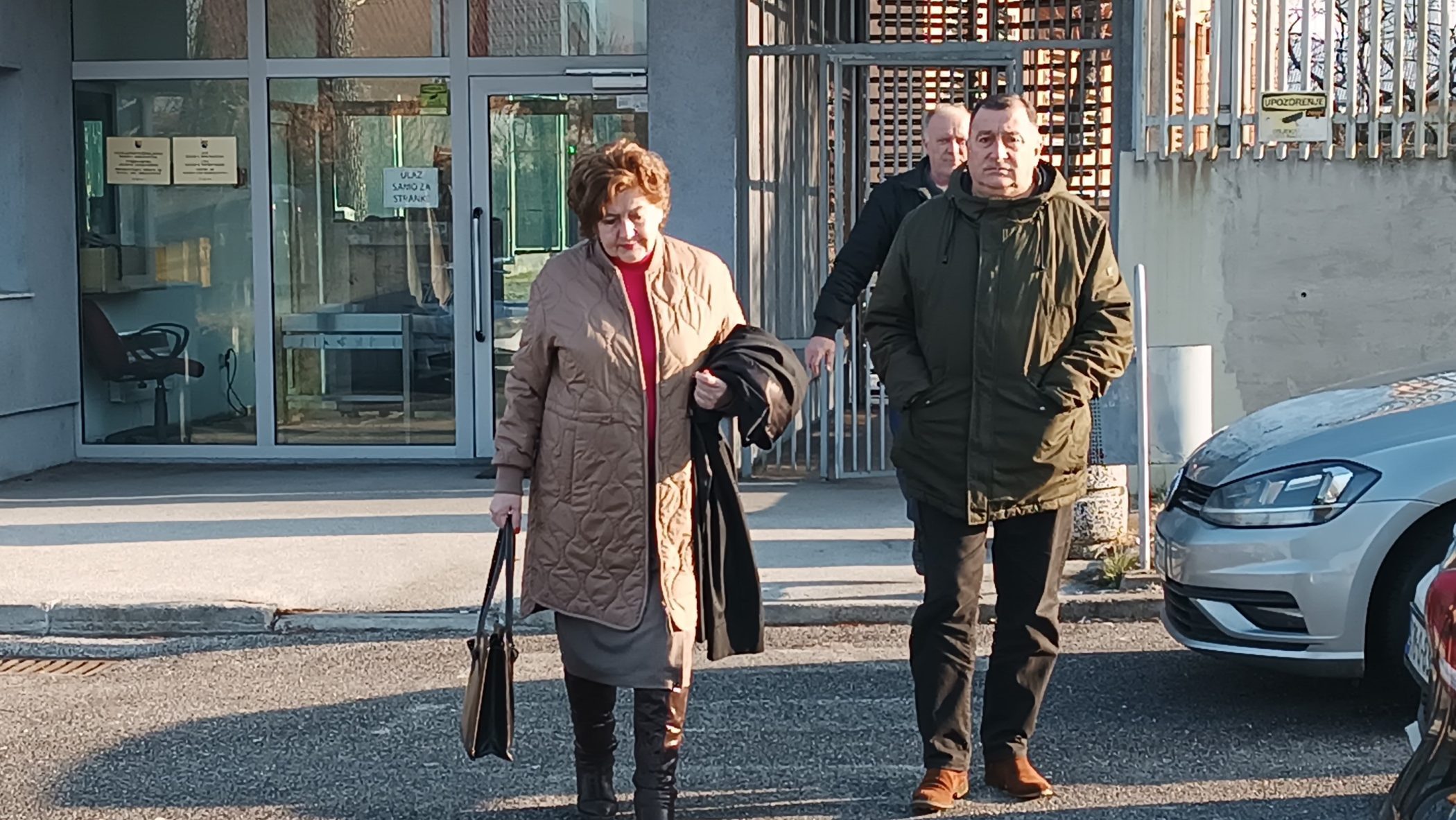This post is also available in: Bosnian
He said that he was then detained in “a garage in the town”.
According to Djikic, the entire group “of about 50 soldiers” was transferred from the garage to the monastery, where they stayed for about five days before being transferred to the gymnasium building in Bugojno.
“Nijaz Bevrnja came to pick four of us from the gymnasium basement. Josip Cubela, Jozo Andjic and Drago Hrkas were with me. We were taken upstairs, where Bosnian Army soldiers tied us to radiators and beat us up. When the soldiers went out, Cubela and Andjic managed to escape. They asked me to come with them, but I did not dare do it. When the soldiers came back, they beat Hrkas and me even more severely than before,” Djikic recalled.
The Prosecution charges Nisvet Gasal, Musajb Kukavica, Enes Handzic and Senad Dautovic with crimes against Croatian civilians, who were detained in garages and detention camps in Bugojno in 1993 and 1994.
Gasal and Kukavica are charged with the responsibility for the functioning of the “Iskra” detention camp, while Enes Handzic and Senad Dautovic, former members of the Bosnian Army, are charged with participating in the “capture of civilians and its planning” in Bugojno.
Djikic said that, “after some time”, he was transferred from the gymnasium to “the basement of the police station” in Bugojno, where he was guarded by Musajb Kukavica.
“I would like to use this opportunity to thank Kukavica, because he treated me in an extremely correct manner. He would tell my wife to come and visit me during his shifts. He allowed her to bring me food and clothes. I do not know how he treated detainees at the stadium, but he treated me in a correct manner,” Djikic said.
Second Prosecution witness Ljuban Zivko, who was member of the HVO Military Police Squad in Bugojno in the course of the war, told the Court that, on July 18, 1993, “following an attack by Muslim defence forces, he was captured and taken to the sports centre”.
“The next day they transferred me from the center to the furniture shop. The floor was flooded with water, which came up to our knees. We used to stand on some palettes. There were nearly 70 people in there. Frightening things were happening every night. It was a normal thing. They would come and call people out, and then we would hear screams coming from upstairs. All people in the town could hear the screams, as they were so loud,” Zivko described.
This witness claims to have been transferred to Iskra stadium in Bugojno in August 1993, adding that, while he was there, he “heard others say that Gasal was the detention camp manager and Kukavica was a clerk”.
“Kukavica used to write down everything. He kept notes and lists. He was the one who took people away. He took me to the frontline, near Gornji Vakuf, to dig trenches,” Zivko said, adding that he came back to the stadium after having spent three months in Gornji Vakuf.
“The conditions were really bad in the detention camp at the stadium. It was like a circus. We were soaking wet. God forbid,” Zivko said, adding that he was exchanged on March 19, 1994.
Third witness Viktor Maros, former member of the third HVO Battalion, was detained in the school building and furniture shop, following the surrender of the HVO forces in Bugojno. He said that he witnessed “beating and musters” while he was detained.
“After having spent about five days in the shop, I was transferred to Vojin Paleksic school. They threatened and slapped me, but they did not beat me up. Then they transferred all 200 or 300 of us to Iskra detention camp at the stadium,” Maros said.
The witness said that he knew that Nisvet Gasal was manager of the detention camp and Musajb Kukavica was commander of guards, who “performed morning musters”.
The trial is due to continue on January 14, 2009.

